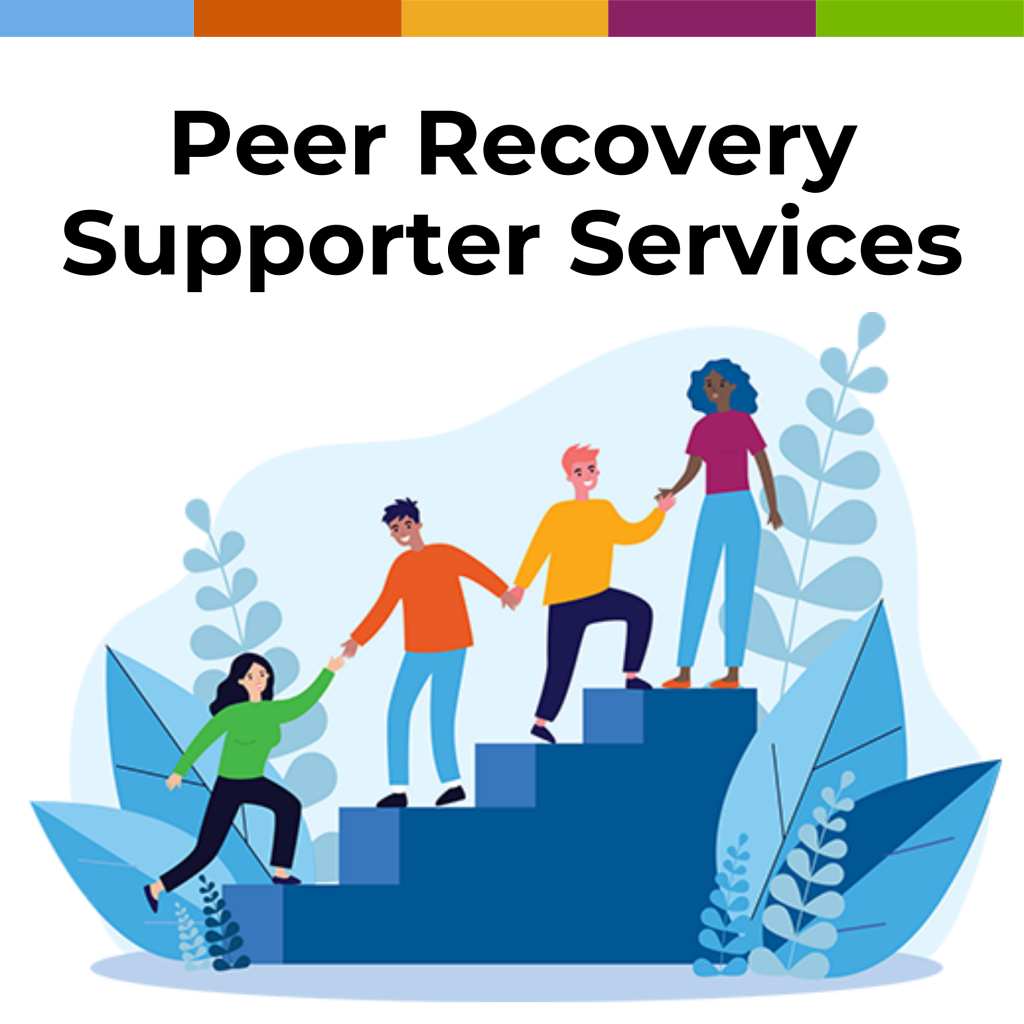Who are Peer Recovery Supporters?
A Peer Recovery Supporter (PRS) is someone with direct lived experience of a mental health and/or substance use disorder who is actively in recovery and uses his or her experience to support, guide and encourage others in recovery.
PRS work in both behavioral health and substance use treatment, crisis centers and emergency rooms, sober housing, drop-in centers, in the court system and in a variety of other settings.
ADAMH and our System of Care are committed to growing peer services in Franklin County by increasing the number of state-certified PRS, improving the experience of PRS working in the community and supporting providers who employ or hope to employ PRS.
How can I become a Peer Recovery Supporter?
The Ohio Department of Mental Health and Addiction Services (OhioMHAS) certifies Peer Recovery Supporters to provide peer services in a variety of settings. Anyone with lived experience of a mental health or substance use challenge and who is in recovery may become a certified Peer Recovery Supporter. Some Peer Recovery Supporters may have criminal offenses in their background as a part of their lived experience. However, certain offenses disqualify an individual from becoming certified. Please review the list of disqualifying offenses to be sure you are eligible for certification.
As part of the certification process, most applicants must complete 40 hours of classroom training. MHAOhio coordinates OhioMHAS 40-hour trainings in Franklin County.
To register for an upcoming training, please complete the following steps:
Step 1. Complete the Ohio Peer Recovery Supporter Training Application
Step 2. Request two references complete the PRS Training Reference Form
Step 3. Complete the following 11 online courses on the E-based Academy and submit a certificate of completion for each to peertraining@mhaohio.org
- Introduction to Peer Recovery Support
- History of Addiction for Peer Recovery Supporters
- Ethics and Boundaries for Peer Recovery Supporters
- History of the CSX Movement for Peer Recovery Supporters
- Helpful Tips for Peer Recovery Supporters Entering the Workforce
- Health and Wellness in Peer Recovery Support
- Cultural Competence in Mental Health and Addiction Recovery
- Human Trafficking Training for Peer Recovery Supporters
- Supervision for Peer Recovery Supporters
- Trauma Informed Care in Peer Recovery Support
- Ohio S-BIRT 101: An Introduction to S-BIRT and Motivational Interviewing
If you have questions, see MHAOhio’s Frequently Asked Questions or contact them at 614.221.1441 ext. 115 or peertraining@mhaohio.org.
For information on the certification process, visit OhioMHAS Peer Recovery Services.
Peer Jobs
MHAOhio promotes open Peer Recovery Supporter positions at certification trainings. If your agency is hiring Peers and you’d like to promote your opening at a future training, please send the job announcement to mtraverse@mhaohio.org. Jobs can also be posted at the Peer Job Board operated by The P.E.E.R. Center at https://ohiopeers.org/jobs/
Looking for a job as a Peer Recovery Supporter? Find open positions statewide on The P.E.E.R. Center’s job board: https://ohiopeers.org/jobs/
Peer Employer Learning Collaborative
MHAOhio has convened the Peer Employer Learning Collaborative, a group of providers and other organizations that currently employ or would like to employ Peer Recovery Supporters. Through the group, employers provide support and information to each other and explore ways to grow peer services and improve the experience of Peer Recovery Supporters working in Franklin County.
Research
Peer support has existed in behavioral health for decades. Its rapid growth in recent years is for good reason. Research and experience show that peer support specialists have a transformative effect on both individuals and systems. Peer support has been shown to:
- Improve quality of life,
- Improve engagement and satisfaction with services and supports,
- Improve whole health, including chronic conditions like diabetes,
- Decrease hospitalizations and inpatient days, and
- Reduce the overall cost of services
Peer support empowers people to make the best decisions for them and to strive towards their goals in their communities. Peers are an essential component of recovery-focused systems and are key across settings and stages of recovery. Read Mental Health America’s summary of the evidence for peer support for a fuller picture of the value of peer services.
In order to better understand the current workplace environment in Franklin County, MHAOhio conducted surveys with follow-up focus groups of both Franklin County Peer Recovery Supporters and their employers. This recent research along with recommendations for employers and a list of peer employer best practices can be found here. Research will inform future programming and guide our approach to growing peer services in Franklin County.
Contact
For information on MHAOhio’s upcoming trainings, becoming a Peer Recovery Supporter, or the Peer Employer Learning Collaborative please contact Maureen Traverse at 614.221.1441 ext. 115 or mtraverse@mhaohio.org.

